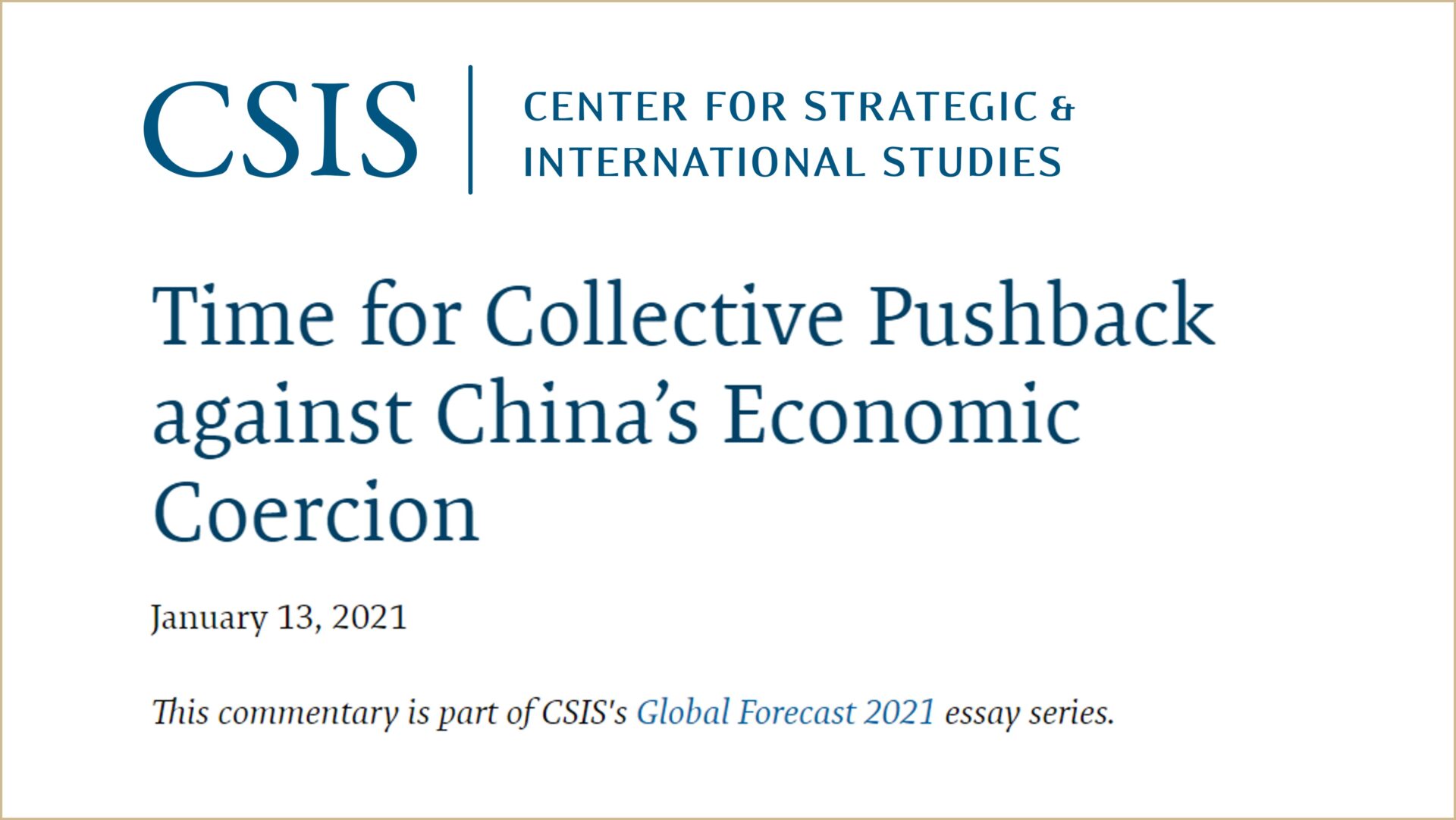Time for Collective Pushback against China’s Economic Coercion
CSIS

This commentary is part of CSIS’s Global Forecast 2021 essay series.
Coping with the multitude of challenges that China poses will require building coalitions. President-elect Joe Biden knows this. “As we compete with China and hold China’s government accountable for its abuses on trade, technology, human rights and other fronts, our position will be much stronger when we build coalitions of like-minded partners and allies to make common cause with us in defense of our shared interests and values,” Biden said at the end of 2020. As the European Union’s apparent decision to sign an investment treaty with China demonstrates, building a unified bloc to push back against all of China’s objectionable policies is unlikely to succeed. Instead, coalitions of the willing will need to form around shared interests on specific issues.
One pressing issue that is ripe for collective action is China’s economic coercion. To date, Beijing has used the threat and imposition of trade-restrictive measures to punish over a dozen countries for pursuing policies deemed harmful to Chinese interests. The first episode occurred in 2010 when China blocked salmon imports from Norway after the Nobel Committee awarded the Peace Prize to Chinese human-rights activist Liu Xiaobo. That same year, Chinese customs officials obstructed exports of rare earths to Japan in an effort to compel Tokyo to release the captain of a Chinese fishing trawler who was detained after his vessel collided with Japanese coast guard vessels in waters near the disputed Senkaku Islands. In 2012, after engaging in a confrontation with China at Scarborough Shoal in the South China Sea, the Philippines discovered that its tropical fruit exports to China were quarantined due to alleged infestation.
Related Posts

document
Letter from Keith Krach to Business Leaders on Xinjiang Supply Chain Business Advisory
It is critical that U.S. companies and individuals be aware of the large-scale human rights abuses perpetrated by the PRC government in Xinjiang. Businesses should evaluate their exposure to the risks that result from partnering with, investing in, and otherwise providing support to companies that operate in or are linked to Xinjiang.

video
Can China Form its Own Alliance? — Simone Gao with Keith Krach
G7 adopted the U.S.-led proposal BuildBackBetter World as an alternative to China’s Belt and Road Initiative. But can it compete with China’s investment? KeithKrach was the under secretary of state responsible for economic diplomacy during the #Trump administration. The Blue Dot network his team drafted was adopted by the Biden Administration and is now the Build Back Better World initiative. This Silicon Valley veteran has a good track record of defeating China’s economic aggression, particularly Huawei’s ambition to take over the global 5G communications.